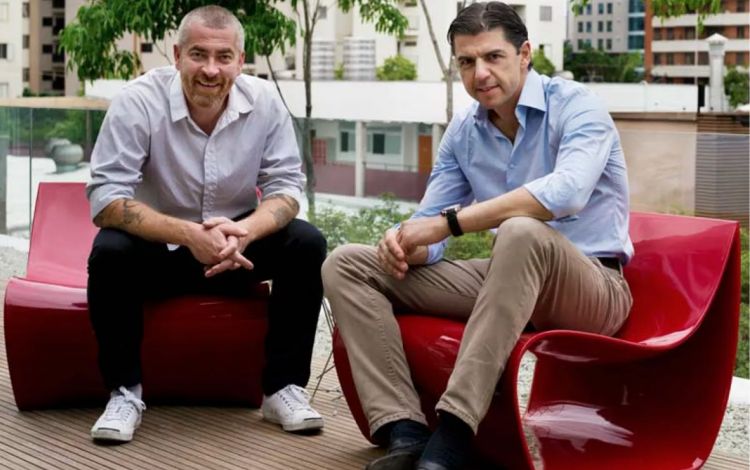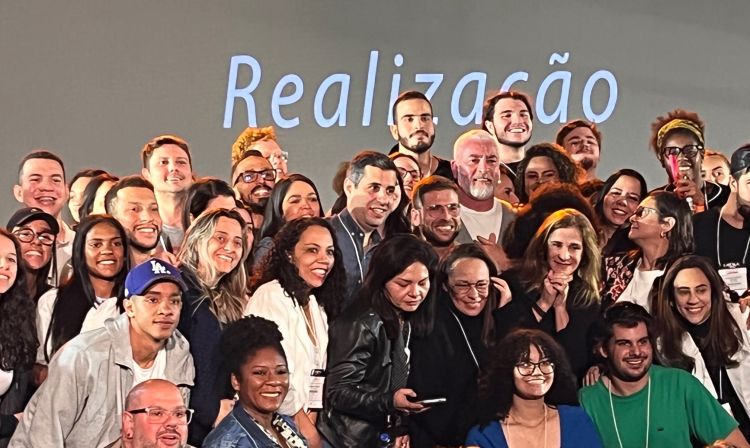We remember Alex Atala swooping in at the 2012 Identità Golose congress, electrified by a rare magnetism. Tattooed and muscular, he was the up-and-coming chef of a country eager to flash on the radar of gastronomy in the new millennium. On the day of his lecture, before talking about the techniques and delicacies of Amazonia, the former DJ from Sau Paulo but of Palestinian origin ventured into political declarations: 'Dear Lula', he thundered to Brazil's president at the time (who is also today's new president), 'extradite brigatist Cesare Battisti to Italy immediately', offering some unexpected titles to our newspapers.
A decade later, Atala speaks with the wisdom of the master. He knows he has marked the lives of many young cooks. Not only those of São Paulo, but of an entire country and continent. It was enough to observe the adoration of the Mesa São Paulo audience at the speech that closed the last edition of South America's oldest congress a few weeks ago. 'After 35 years in the business,' the chef suddenly declared, 'I am retiring from the kitchen of my restaurant. That can peacefully go on without me. And it is also the last time I will be on this stage'. Who knows if it will also be the last time at Identità Golose, the Milanese stage where he will return to for the second time on Saturday 28th of January 2023. We chatted backstage and he made some non-trivial statements.
In 2012, you told us about jabuticaba, pirarucú and priprioca, symbols unknown at the time, from the world's most biodiverse country. Today that heritage is acknowledged. What challenge awaits Brazilian cuisine?
A great social challenge. Now that cooks have status, the work of farmers must be recognised. Which must be emphasised in all its dignity. In Italy you have set the example: behind a great product there is always a person who struggles. In Brazil we are not so good: we hyper-process products for 200 million inhabitants but then we do not give value to those who work our land. The challenge of the next 10 to 15 years is to illustrate all the links in the food chain. And the first ones are the most important.

The Identità Golose Congress, March 2012, Alex Atala with Andrea Berton: they were the authors of a memorable four-handed dinner at Trussardi alla Scala
He is absolutely right: farmers are not acknowledged and even less so in Brazil. In Italy you have no problem paying more for good products; here we don't: people get angry if someone spends so much for cheese. And then maybe they buy Chilean mushrooms, which suck. It's not just a political problem, but a cultural one.
The challenge is also won through information, Petrini also said. How has food communication changed in recent years?
It has changed for the worse because 10-15 years ago journalism counted more than today. Today influencers have much more weight than a journalist from
Corriere della Sera or
Folha de S.Paulo. And that is the biggest problem. I would like to discuss with experts, scholars, journalists; not influencers. They are the only to have a voice but they don't understand a thing
. Food information must take back the space it had. And talk not only about gastronomy but about everything that comes before.
We found the São Paulo gastronomic scene irrepressible.
There are great chefs who push the city forward. Like
Rodrigo Oliveira of
Mocotò. He is doing great things in the suburbs we call
quebrado. It is a restaurant that makes me proud of my city and deserves all the attention it gets. But there are also chefs in Brazil who deserve more, like
Manu Buffara, who works in
Curitiba. She has never worked with me but we have a beautiful relationship. For me, she is the best cook in Brazil, but you can't even find her here in the programme at
Mesa São Paulo. These things amaze me. Why does this happen? Because influencers don't go to her. Ten years ago she would have had all the attention she deserves.

Atala with his fans in Sao Paulo
I have just been to
Ein Prosit: I was moved at dinner at the
Alajmo's. But also at
Fredi's, a simple but beautiful place in Udine. I adore your country: I even got married in Milan, in 1992. I learnt so much from you. I was a young Brazilian who cooked French food and wanted to work in fine dining or in important places. When I came to Italy, I understood the importance of simple cooking, of spaghetti with tomato and basil, which is delicious both in restaurants and at a friend’s house. It may not be the best dish in the world but it is a hymn to simplicity. A masterpiece that has changed the way I cook.
Translated into English by Slawka G. Scarso